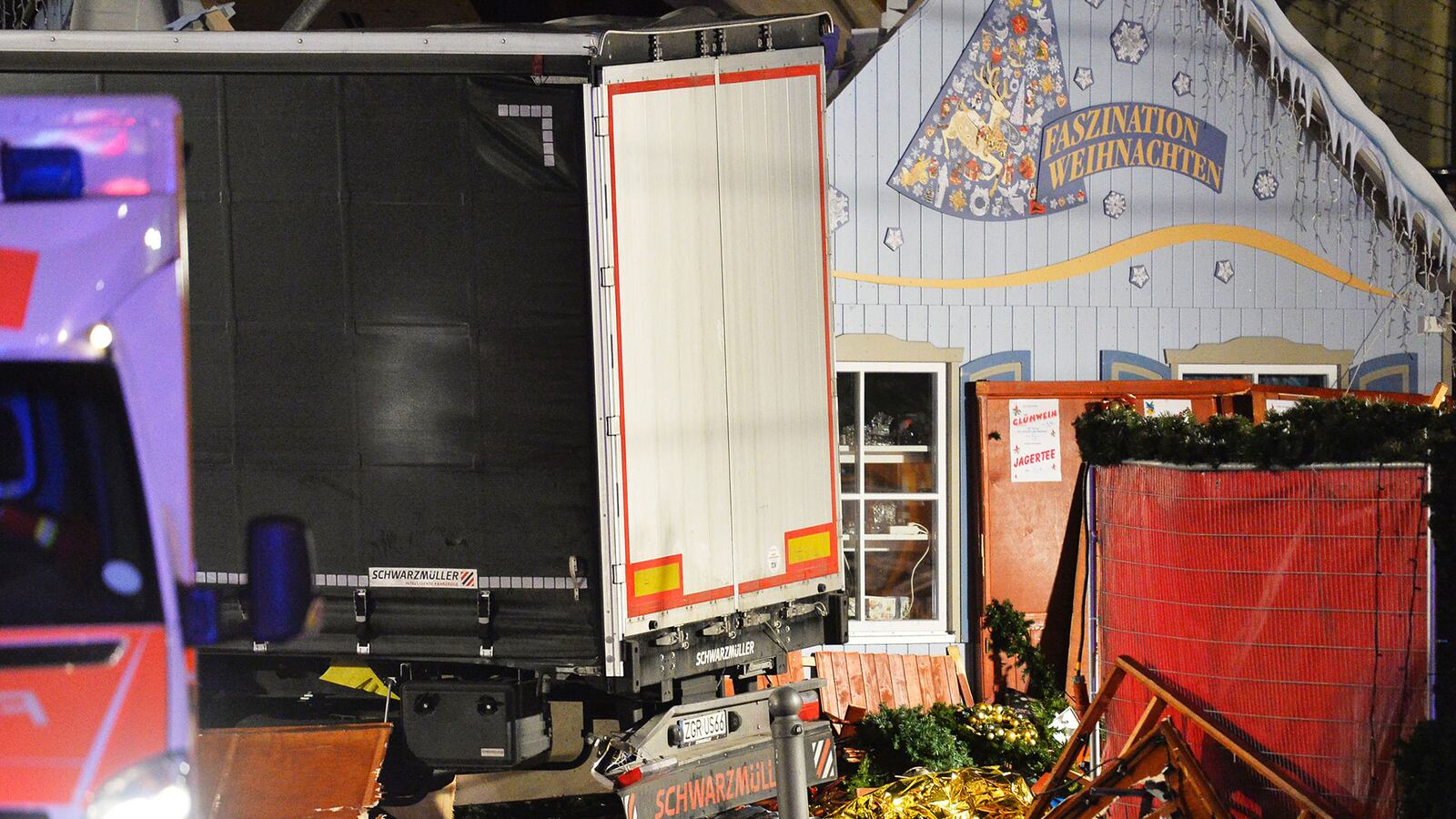At least 12 people are dead and as many as 48 injured in a suspected terror attack in Berlin when a Schwarzmuller rental truck plowed into a Christmas Market on Monday evening. Police arrested one suspect in the attack, though they are investigating whether he was the driver of the vehicle. A second occupant of the truck’s cab is dead.
Monday’s attack occurred in Charlottenburg, a leafy, affluent area of the city known as the Times Square of Berlin. Emma Rushton, a British woman who witnessed the attack, told news outlets that the truck was traveling at a fast speed when it hit the market. It did not look like an accident, she added.
“Please help us. Stay home and do not spread rumors,” the Berlin police tweeted. “Follow us here for important information.”
Police have not formally attributed a motive to the incident, but it is reminiscent of a similar attack earlier this year in Nice, France, in which a terrorist drove a truck into a crowd of people, killing 86. ISIS claimed the driver as a “soldier” of the so-called Islamic State. The terrorist group’s tactics have increasingly turned toward Europe as it has lost territory in the Middle East.
A November issue of Rumiyah, the ISIS magazine aimed at foreign recruits, advocated vehicular attacks modeled on the one in Nice. The ideal vehicle was described as a large, load-bearing truck—ideally double-wheeled, “giving victims less of a chance to escape being crushed by the vehicle’s tires.”
“Vehicles are like knives, as they are extremely easy to acquire,” the magazine added. “But unlike knives, which if found in one’s possession can be a cause for suspicion, vehicles arouse absolutely no doubts due to their widespread use throughout the world.”
Wolfgang Bosbach, a member of parliament with Angela Merkel’s Christian Democrats party, said that there are indications the Berlin carnage “was a deliberate attack.”
The incident occurred near the Kaiser Wilhelm Memorial Church, a popular tourist destination in the city and a reminder of the city's resilience. The original church was destroyed in World War II, and its ruins were kept as a memorial of the war.






